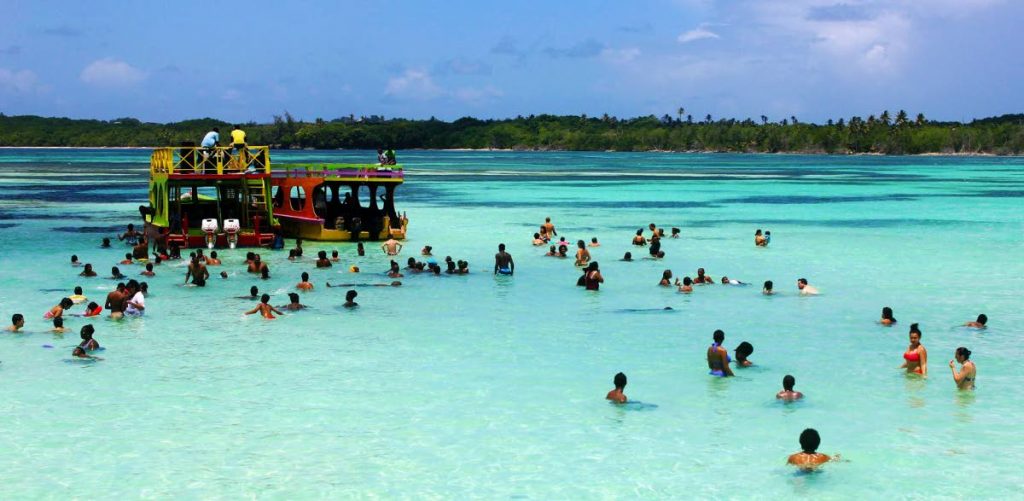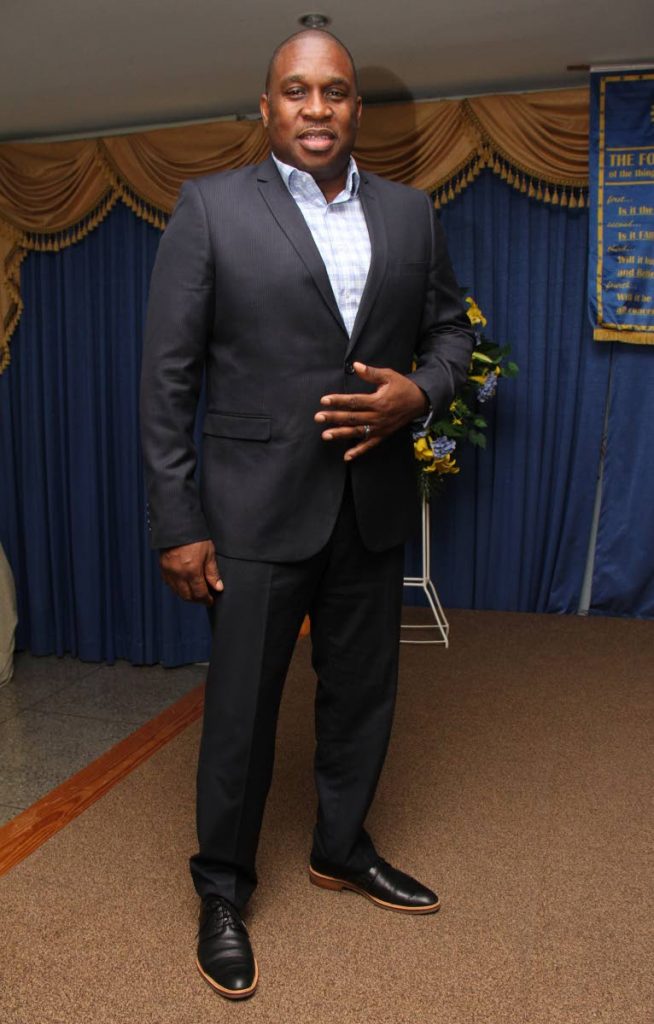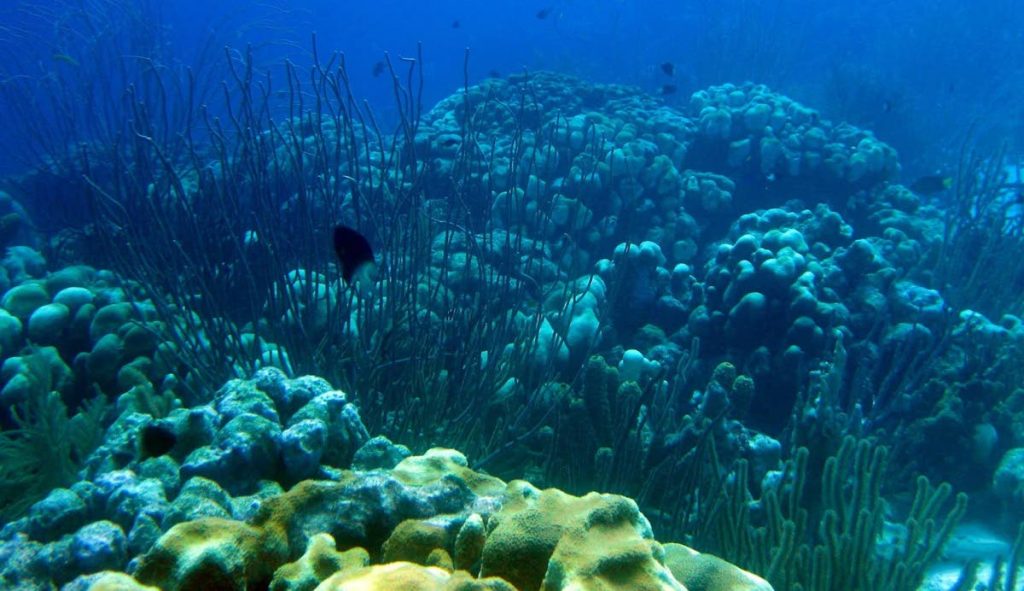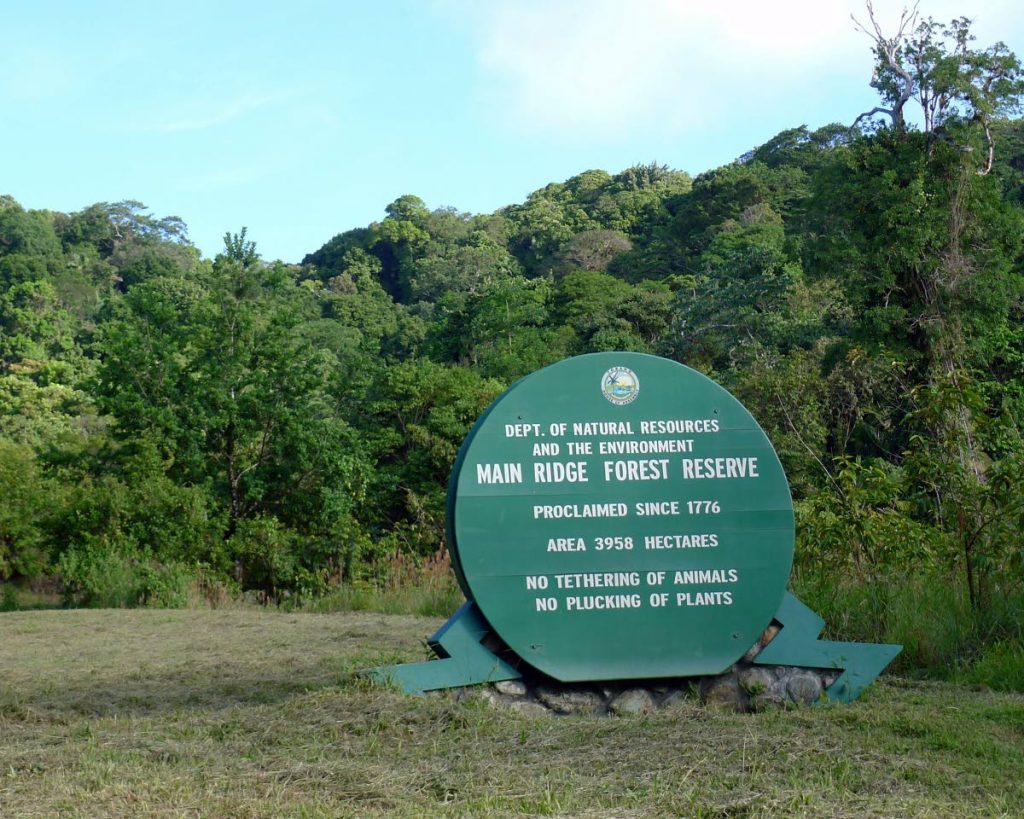Building the Tobago brand

TT has to embrace tourism as a new sector, and a new opportunity for economic growth, with Tobago at the centre of its development.
However, there are some fundamental issues that need to be addressed, chief executive officer of the Tourism Tobago Agency Louis Lewis said on Tuesday, as the feature speaker at the Port of Spain Rotary Club luncheon at Fitzblackman Drive, Woodbrook.
Lewis said in the 2017/2018 budget, Government made the policy decision that tourism was going to be a critical part of the economic landscape of TT.

To facilitate this, Government established two agencies to become the vehicles for that transformation process – the Tobago Tourism Agency and Tourism Trinidad Ltd. These parallel institutions have the responsibility for driving tourism in each island.
He said from the Tobago standpoint, the first order of business was to develop a road map.
"We were able to develop that road map that says where we are going to, how we are going to get there and how do we know when we get there because you can work continuously without realising you have reached your objective."

Research was essential to the process, said Lewis. "We engaged in an extensive amount of research and the beauty of technology, nowadays, is that it allows you insights that you cannot get from just gut feeling and inspiration. We developed something called a sentimental analysis. What that did was scrape the web to find conversations that were happening on Tobago, about Tobago and weighed it with the context of positive and negative."
He said they were able to determine what people were saying about Tobago and measured the positive versus the negative.
"We came out with a net positive of about 80 per cent, so that gave us an insight about the image of Tobago from the visitors' standpoint. But what we also discovered was that that sentiment, while positive, was very low. It meant that our marketing had to address that volume."
Lewis said Tobago represented this economy's scale when it came to tourism. For instance, with all flights being subsidised on the airbridge, with a weekly service, the frequency was very low which made it difficult for visitors to get to the traditional vacation spot.
"If we are honest with ourselves the quality of our product was not exactly competitive as our front-runners from the tourism perspective."
Marketing nature heritage
He said in the context of visibility, Tobago was not very well known in the market place.
"These became the core challenges that we had to address. We went full frontal, everywhere we identified a major weakness, we converted it into what we think is a stretch. If you look at the longer context of the world we live in, there are a number of shed services, people are looking for authentic experiences, looking for off the beaten track activities. Because marketing is so aggressive, people are also looking for new destinations."

He said the agency used the phrase "undiscovered, unspoiled and untouched" which they converted as attractors to get people to go to Tobago.
Lewis said if one looked at Tobago and its tourism assets, there were three strong pulls with each having the potential to be promoted as nature heritage.
"We have the Nylon pool. You cannot get anything of that geographic phenomena anywhere in our region. If you look at the rain forest, it is the longest protected forest reserve in the entire western hemisphere. There is no where else that comes close to that. This has been since 1776 so that forest has been protected from as long as America gained independence.
"The largest coral reef (one of) in the world, not withstanding the fact that it is now being attacked by the fish, so it is a little deteriorated. When you look at the history of Tobago there is no island anywhere in our geographic space that has changed hands among those colonial rulers as often as Tobago – 35 times."
He said the agency recognised this and developed a small component to develop an iconic brand image of the destination. He said it was also the challenge of how do you sell Tobago.
"It is because of that abundance of natural assets that the tour operators have had difficulty in translating that into what marketing specialists call a unique selling proposition because there were so many unique opportunities.
"We translated it for them in what we call the core attractors. On one pillar we have sand, sea and sun and also the culture and heritage. Then you have the natural environment which is our major pull where you find that longest protected rainforest in the world and you have the health and wellness and romance factors."
Lewis said these assets have not found their way into a marketing position because of some of the structural issues still to be addressed.
Boosting flights, room capacity
"When you talk about access to the destination the first initiatives that we had to ensure is once we create that demand for Tobago, we have to be able to find a way to get there. The unfortunate thing is that all our flights are subsidised so we are working against the wind but fortunately we have been able to secure them from the UK, Germany and Canada."
Touching on Sandals and the decision not to build the five-star hotel in Tobago, Lewis said people debated the benefits to be had during a vacation.
"When you have only 3,000 rooms of a three-stars hotel and you are up against a five-star luxury property, the average visitor is making a comparison in a very sober and sterile environment. Do I go to a place where I get X number of services, or to another place where they may have some issues. If I have to make a decision on the basis of convenience I can go into Barbados twice a day, any day of the week. If I want to go to Tobago I have one flight and if I miss that flight I'm off by another week, and that is the reality of the competitiveness we have here.
"When we missed the opportunity of the Sandals project you could only imagine how grieved we were on a technical perspective. That would have addressed the issue of the economies because it would have been a large bank of rooms that would have come with its own machinery for marketing. That would have allowed and encouraged a greater frequency of flights into markets that we had difficulty engaging."
He said it was impossible for the agency to go after that kind of investment alone, adding that it must be a collective effort from an investment strategy perspective.
He said there was also the issue with quality of service.
"We have to be honest with ourselves. There is a lot of room for improvement. We are addressing issues with the quality standards. There has been a strong resistance to get to that next level. We are aiming to get the product service delivery to be consistent with the marketing efforts. There has to be a change in the mindset of how do you monetise your assets without allowing tourism to change the culture of your society. We have a very rich heritage that is colourful. It finds expression in our cuisine, our festivals and celebrations."
Balance environment with luxury
Questioned why he was open to Sandals in Tobago when there was such a pristine environment which the agency also wanted to preserve, Lewis said it was very possible if one employed the right conservation builders to not adversely impact the environment.
"The bigger issue is that because the attractiveness is about its pristine nature, you have to be careful to not upset that balance. Part of Tobago's major challenge is that economy is a scale, so you have to ensure that does not become your strategy for the entire island. You don't want to have all your beaches with high volume-generating hotels.
"One property at a high value creates a very high yield per acre of the land. You allow that to utilise to address the issues of this economy, and then be very careful how you address the rest of your development. You need a high volume generator to address issues that can benefit everybody."
Lewis said with the right marketing, generous investors and partnering the island's rich heritage with the new adventures people were seeking, Tobago will sell itself.


Comments
"Building the Tobago brand"